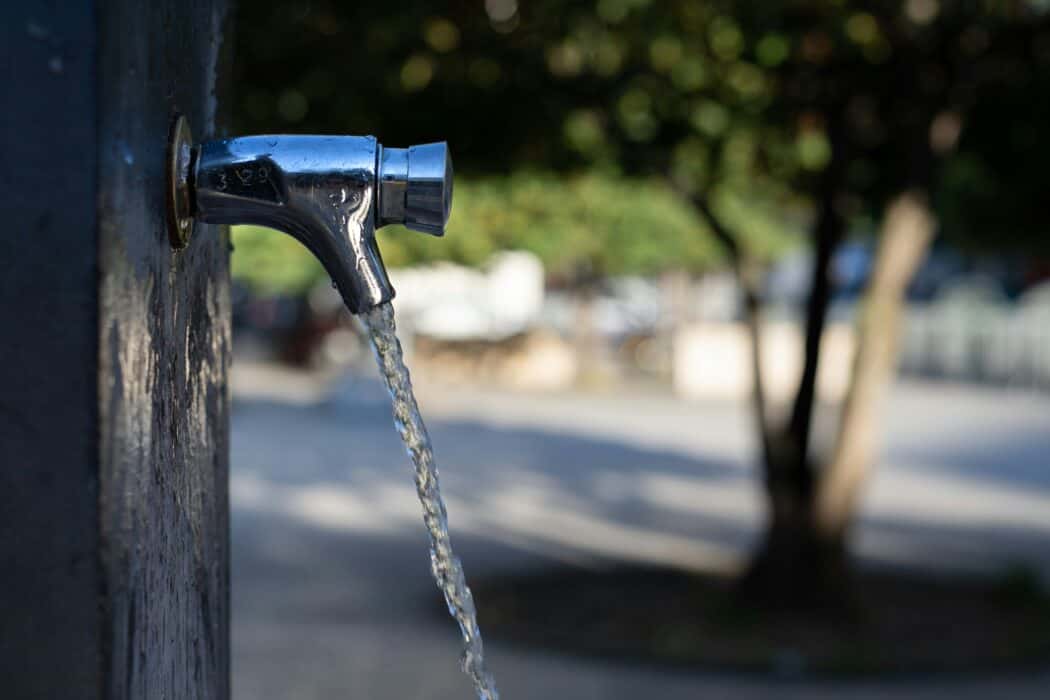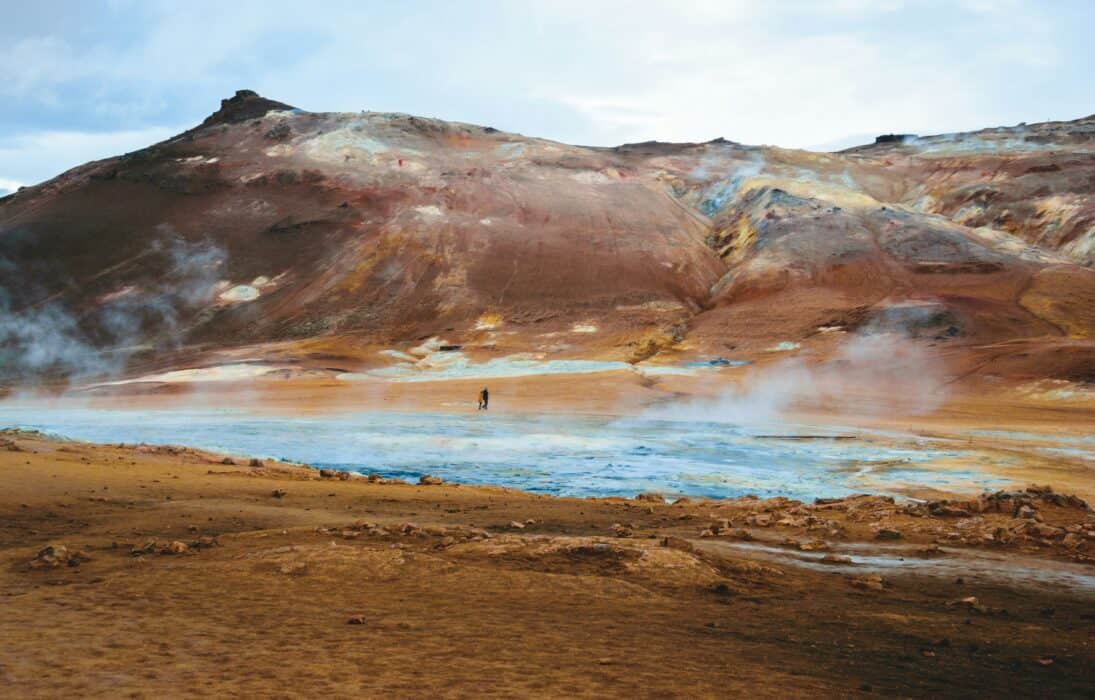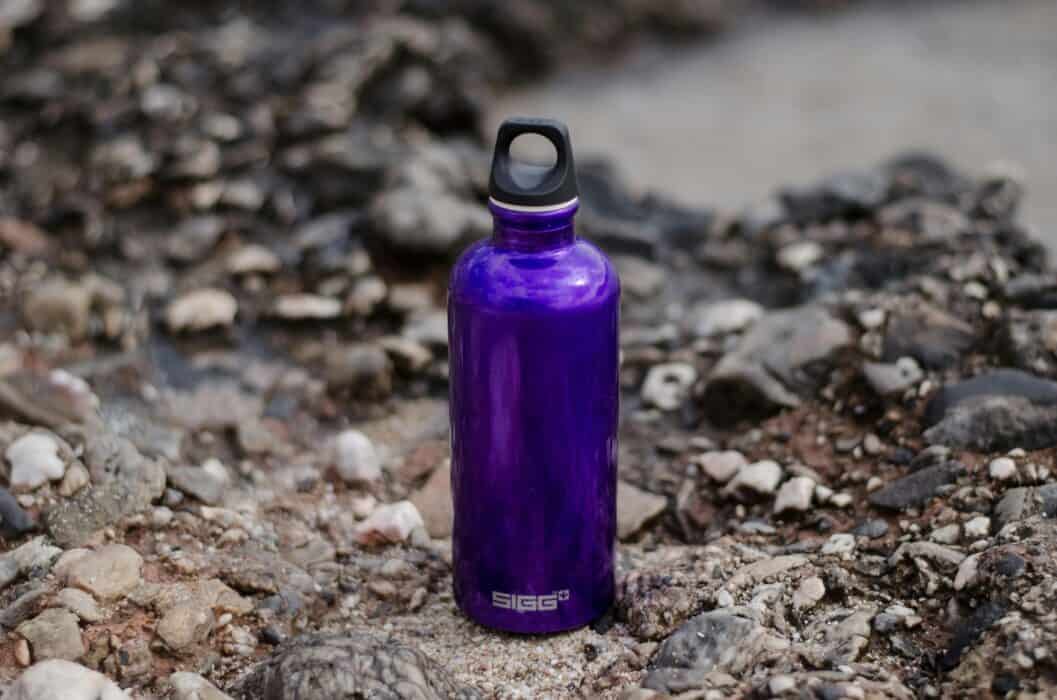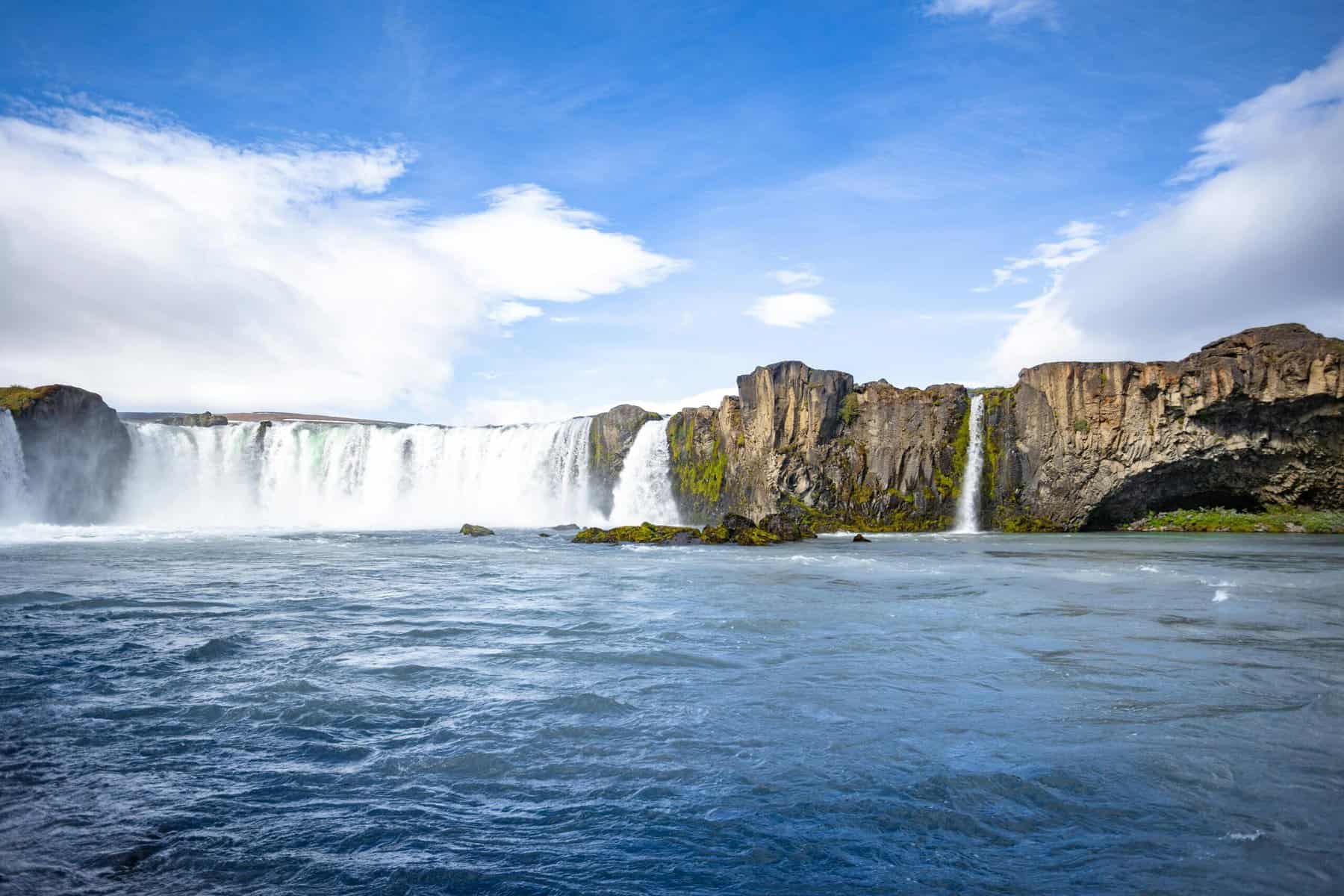Can You Drink Tap Water in Iceland – Is it Safe to Drink?
Disclaimer: This post may contain affiliate links, which means I may earn a small commission if you make a purchase at no additional cost to you. I only recommend products and services that I would use myself and all opinions expressed here are my own. You can read my full privacy policy here.
Are you visiting Iceland and wondering whether the tap water is safe to drink? – The good news is that tap water in Iceland is safe to drink.
This is almost always one of the first things I look up upon arriving in a new country and was also the case in Iceland. Iceland is a country that’s largely known for its high water quality. The country’s water supply is also known as some of the cleanest and purest in the world. Iceland has access to abundant natural water resources including glacier runoffs, pristine rivers and spring which then becomes naturally filtered through layers of volcanic rocks. All this to say that when you open the tap to get water in Iceland, you can take comfort in the fact that it is some of the safest, cleanest tap water in the world.
That being said, you may also be wondering whether –
(1) Is water in Iceland free to obtain?
(2) Where does one refill their bottle in Iceland?
(3) Why does water in Iceland can have a sulfur smell and is it safe?
We’ll go through these in turn in the guide below.
What is the Source of Tap Water in Iceland?
Tap water in Iceland is primarily natural freshwater which originates from springs, rivers that are further downstream from glaciers, rainwater, and snowmelt.
Iceland’s tap water is renowned for being some of the purest drinking water in the world and it is mostly coming directly from geothermal and glacier source with minimal treatment to make it drink worthy.
Due to Iceland’s abundant clean water supply, it is often touted that water in Iceland is often of higher quality than bottled water! So if you’re visiting Iceland, be green and do away with buying bottled water that is overpriced. Instead bring a refillable bottle with you wherever you go.
Why is Iceland Tap Water Safe to Drink
1. Natural Filtration
Most of Iceland’s water comes from glacial melt, rain, and snow, and then goes through a natural filtration process through many layers of volcanic rock. This filtration process removes impurities, leaving the water clean and full of natural minerals.
2. Low Pollution Levels
Iceland has a small population and has relatively little industrial activity compared to other countries that contribute to pollution emissions. As a result there is less pollution and less contaminants entering the clean water supply.
3. No Treatment
Because the water is so pure from its natural sources, it requires little to no chemical treatment. This means it is without additional treatment substances such as chorine and fluoride with are used in other countries including UK and USA.
4. Sustainable Practices
Iceland as a country has strong environmental regulations and a focus on preserving its natural resources. This includes policies to protect water sources from contamination and overuse.
5. Geothermal Energy
Hot water in Iceland is often geothermally heated, coming from underground hot springs that are naturally occurring and also free from contaminants. The hot water can be used for bathing and heating, however it sometimes has a slight sulfur smell from geothermal activity.

Where to Refill Tap Water in Iceland when Traveling
Hotels and accommodation: Here you can refill your water bottle directly from the sink.
Public fountains and drinking taps
In Iceland’s larger cities like Reykjavík and Akureyri, there are tap water fountains which are typically located near parks or tourist attractions, water from these and safe same as from hotels and restaurants. There have been increased numbers of these refillable stations built in cities like Reyjkavik in recent years in an effort to reduce tourists buying plastic bottles and to reduce plastic waste.
Restaurants and Bars
Tap water is readily available at restaurants and bars across Iceland. If you don’t want to pay for bottled water, just make sure to ask for tap water over bottled or spring water.
Is tap water free in Iceland in restaurants and bars?
Tap water is free is restaurants and bars in Iceland. Some places may have a self service tap water station, otherwise just ask for tap water. Still or sparkling water typically incur a regular charge, similar to most countries.
Pro tip: I would regularly ask restaurants to refill my reusable water bottle when we were road tripping and driving across Iceland. They are happy to do it, and it meany less of a hassle locating a water stop when you are out exploring.
Gas Stations and Convenience Stores
Many gas stations and convenience stores will have free access to tap water and allow you to refill your bottle inside, especially in more rural areas where you may not have as many public water fountains.
Hiking Trails and natural attractions
If you’re out exploring nature, especially in rural areas, you can often refill your bottle from fresh streams or rivers, particularly those that originate from glaciers or natural spring water sources. However, it’s best to confirm locally whether a specific water source is safe to drink, as some places could contain natural contaminants like animal waste, depending on the area. Look out for signs in the area or check with a tour guide/ visitors center/ park ranger/ – often referred to in Iceland as ‘Landverðir’ You will likely only find ranger at the more popular national parks in Iceland such as Þingvellir National Park, Vatnajökull National Park, Snæfellsjökull National Park and in popular natural reserves.

Why does Iceland’s Tap Water Smell like Sulfur
I found water in some places had a slight sulfuric smell. It turns out that Iceland’s tap water, in particularly the hot water, can sulfur like smell due to hydrogen sulfide which is a naturally occurring gas in geothermal water sources where the water is sourced from. As Iceland uses geothermal energy to heat its water (and for power), this can often contain the sulfur compounds that give the sulfur “rotten egg” smell. However, this odor is harmless and only affects the hot water.
If the tap hot water’s smell does bother you, I recommend just using cold water and heating it up in the hotel with kettle and carrying hot water with you in a thermos if you like drinking water that is warm during the day,
Benefits of Drinking Tap Water in Iceland
Drinking tap water in Iceland is not only better for the environment but also better for you. Icelandic water is touted as some of the best in the world and here is why – Iceland’s water is naturally filtered through volcanic rock. This process enriches it with essential minerals like calcium and magnesium. The natural filtration process means, Icelandic tap water has less treatment from chemical additives like Chlorine and Fluoride.

Final Thoughts
Make sure to pack a refillable bottle with you on your trip to Iceland and can take comfort in the fact that when you drink water in Iceland – you are drinking some of the purest tap water in the world.
Are you heading to Iceland? Check out our other guides on Iceland below –

